

Course Outline
The Institute of Historical Research of the National Hellenic Research Foundation, one of the most important establishments for the research and study of Greek history (ancient, medieval and modern) at international level, is pleased to announce the organisation of its first Summer School on Ancient Greek and Roman Numismatics, to take place at its premises in Athens, from 3 to 12 July 2017.
The ten-day intensive Summer School aims at familiarising those who have little or no background with the discipline of numismatics by offering a series of courses on methodology and various special themes. It will consist of lectures, practical sessions and visits to numismatic collections (Numismatic Museum, Alpha Bank Numismatic Collection, KIKPE/Welfare Foundation for Social and Cultural Affairs Numismatic Collection), museums (Acropolis Museum) and archaeological sites in Attica (Lavrion).
The courses will provide a chronological survey of ancient Greek and Roman coinage (from the invention of coinage to the Roman period), combined with special lectures on numismatic methodology, such as the study of coin hoards, metrology, iconography and online resources. Practical sessions will take place at the NHRF premises and in museums.
The Summer School on Numismatics is addressed to undergraduates, postgraduate students and PhD candidates in History, Archaeology and Art History, to historians and archaeologists, but also to individuals with a special interest in numismatics.
The instructors are researchers at the Institute of Historical Research of the National Hellenic Research Foundation, with contributions by other experts in Greek and Roman numismatics. Each year a visiting scholar will be invited to develop a special topic. This year’s guest speaker is Dr Christophe Flament, who will focus on the coinage of Athens.
The number of participants is limited to 25. They will be selected by the Scientific Committee following a thorough assessment of the application and the CV of the candidates.
The course will be taught in English.
All students will receive a certificate of participation.
Media Sponsor
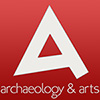
Programme
Sunday, 02.07.2017 // Day 0
20.00 - 22.00 |
Welcome dinner |
Monday, 03.07.2017 // Day 1
Morning Session
09.30 – 11.30 |
Welcome - Introduction to the course |
11.30 - 12.00 |
Coffee Break |
12.00 - 13.00 |
Introduction to the course |
13.00 - 14.30 |
Lunch break |
Afternoon Session
14.30 – 16.00 |
Invention of Coinage I |
16.00 - 16.30 |
Coffee Break |
16.30 - 18.00 |
Invention of Coinage IΙ |
Tuesday, 04.07.2017 // Day 2
Morning Session
09.30 – 11.30 |
Describing a coin |
11.30 - 12.00 |
Coffee Break |
12.00 - 13.00 |
Coins in context |
13.00 - 14.30 |
Lunch break |
Afternoon Session
14.30 – 16.00 |
Archaic and Classical Coins I |
16.00 - 16.30 |
Coffee Break |
16.30 - 18.00 |
Archaic and Classical Coins II |
Wednesday, 05.07.2017 // Day 3
Morning Session
09.30 – 11.30 |
Online resources and databases |
11.30 - 12.00 |
Coffee Break |
12.00 - 13.00 |
Practical: Practice on Coin Database entries |
13.00 - 14.30 |
Lunch break |
Afternoon Session
14.30 – 16.00 |
Hellenistic period I |
16.00 - 16.30 |
Coffee Break |
16.30 - 18.00 |
Hellenistic period IΙ |
Thursday, 06.07.2017 // Day 4
Morning Session
09.30 – 11.30 |
Visit to the Alpha Bank Numismatic Collection |
11.30 - 12.00 |
Coffee Break |
12.00 - 13.00 |
Practical at the Alpha Bank: Identification of coins / Strike your own coins |
13.00 - 14.30 |
Lunch break |
Afternoon Session
14.30 – 16.00 |
Roman Coins I |
16.00 - 16.30 |
Coffee Break |
16.30 - 18.00 |
Roman Coins IΙ |
Friday, 07.07.2017 // Day 05
Morning Session
09.30 – 11.30 |
Iconography |
11.30 - 12.00 |
Coffee Break |
12.00 - 13.00 |
Practical : Practice in Iconography |
13.00 - 14.30 |
Lunch break |
Afternoon Session
14.30 – 16.00 |
Roman Provincial coins I |
16.00 - 16.30 |
Coffee Break |
16.30 - 18.00 |
Roman Provincial coins II |
Saturday, 08.07.2017 // Day 6
All day |
Visit to Lavrion mines |
Sunday, 09.07.2017 // Day 7
All day |
Free day – Optional Aegina excursion |
Monday, 10.07.2017 // Day 8
Morning Session
09.30 – 11.30 |
Visit to the Acropolis museum |
11.30 - 12.00 |
Coffee Break |
12.00 - 13.00 |
Lecture by C. Flament at the Acropolis museum |
13.00 - 14.30 |
Lunch break |
Afternoon Session
14.30 – 16.00 |
The coinage of Athens I |
16.00 - 16.30 |
Coffee Break |
16.30 - 18.00 |
The coinage of Athens II |
Tuesday, 11.07.2017 // Day 9
Morning Session
09.30 – 11.30 |
Visit to KIKPE (The Welfare Foundation for Social and Cultural Affairs) |
11.30 - 12.00 |
Coffee Break |
12.00 - 13.00 |
Practical at KIKPE : Practice with bronze coins |
13.00 - 14.30 |
Lunch break |
Afternoon Session
14.30 – 16.00 |
Hoards |
16.00 - 16.30 |
Coffee Break |
16.30 - 18.00 |
Literary sources for the ancient economy |
Wednesday, 12.07.2017 // Day 10
Morning Session
09.30 – 11.30 |
Visit to the Numismatic Museum |
11.30 - 12.00 |
Coffee Break |
12.00 - 13.00 |
Visit to the Numismatic Museum |
13.00 - 14.30 |
Lunch break |
Afternoon Session
14.30 – 16.00 |
Introduction to metrology I |
16.00 - 16.30 |
Coffee Break |
16.30 - 18.00 |
Introduction to metrology II |
| 20.00-22.00 | Farewell Drink |
Media Sponsor

Application Procedure
The Summer School on Numismatics is addressed to undergraduates, postgraduate students and PhD candidates in History, Archaeology and Art History, to historians and archaeologists, but also to individuals with a special interest in numismatics.
The number of participants is limited to 25. They will be selected by the Scientific Committee following a thorough assessment of the application and the CV of the candidates.
The final deadline for applying is: 31 March 2017 (00.00 EET)
Candidates are invited to submit the online application form.
Applicants will be informed of the selection results by e-mail not later than 6 April 2017. Along with the confirmation, they will also receive further information to complete the registration process.
Media Sponsor

Instructors
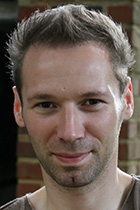
Christophe Flament
Christophe Flament completed his PhD in Ancient History (2005) on the subject of “Coinage and Economy in Classical Athens (5th – 4th centuries BCE)”. He was Post-doctoral researcher at the F.R.S-FNRS (2006-2012), and then appointed professor at the University of Namur (Belgium), where he teaches Ancient History. He is also invited professor at the University of Louvain-la-Neuve (Belgium).
His research mainly focuses on coinage, economy, and institutions of Ancient Athens. He also studied the coinage of Argos on the long run (from the Archaic Period to the 3th century CE). Dr. Flament is the author or co-author of 4 books and of more than 50 publications in peer-reviewed scientific journals and proceedings. He is also co-editor of two international journals: Revue belge de numismatique and Les etudes classiques.
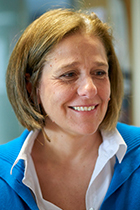
Sophia Kremydi
Sophia Kremydi is Senior Researcher at the Institute of Historical Studies (IHR), Section of Greek and Roman Antiquity (KERA), of the National Hellenic Research Foundation (NHRF). She studied History and Achaeology at the University of Thessaloniki (1979-1984) and obtained her PhD from the same University in 1993.
Her research interests include the study of coinage of the provincial cities under Roman rule (Roman Provincial Coinage), numismatic circulation in the Hellenistic and Roman period through site finds and coin hoards, as well as the coinage, history and institutions of Hellenistic Macedonia. Her research aims at using coins as a primary source for the study of History.
Since 2010 she has been coordinating the “Northern Greece” Programme that focuses on the publication and study of primary sources in Macedonia and Thrace.
Between 2012-2015 she was in charge of the research project “Inscriptions and Coins. New documents from ancient Macedonia” (InCoMac) funded by the Action “Aristeia I” of the Operational Programme “Education and Lifelong Learning”.
She has published a monograph on the coinage of the Roman colony of Dium, a volume of Sylloge Nummorum Graecorum on Macedonian coins, a monograph on the hoards from Dium and over 40 papers in journals, conference proceedings and honorary volumes.
She is actually preparing the publication of a monograph on the ‘autonomous’ coins struck in Macedonia under the Kings as well as the proceedings of a conference on the coinage of Alexander and its role as international currency in the Hellenistic world.
Full CV:
http://www.eie.gr/nhrf/institutes/igra/cvs/cv-kremydi-en.pdf
https://eie.academia.edu/SophiaKremydi
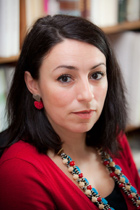
Evangeline Markou - Seminar coordinator 2017
Evangeline Markou is an Associate Researcher at the Institute of Historical Research (IHR), Section of Greek and Roman Antiquity (KERA) of the National Hellenic Research Foundation (NHRF) in Athens (2009-today).
She studied History and Archaeology at the Aristotle University of Thessaloniki (1993-1997) and obtained her M.Phil (1998-2000) and Ph.D. (2001-2006) from the University of Sorbonne - Paris IV in History and Civilisation of the Antiquity with a fellowship from the A.G. Leventis Foundation. Her Ph.D subject was the gold coinage of the kings of Cyprus of the Classical period that has been published in 2011 (ΜΕΛΕΤΗΜΑΤΑ 64).
She worked at the Fitzwilliam Museum of Cambridge (2004-2005) and at the Numismatic Museum of Athens (2005-2007) as responsible for the digital documentation of the numismatic collections and she taught Undergraduate and Postgraduate courses on ancient numismatics, ancient history and archaeology as an Adjunct Lecturer at the University of Cyprus (2008-2009), the Open University of Cyprus (2008-2012, 2015-2016) and at the University of Rhodes (2014-2016) as Course Coordinator.
Her research, presented in numerous congresses and published in scientific papers, is focused on the numismatic production of the kings of Cyprus and questions related to the history of Cyprus during the Archaic and Classical periods.
Since 2013 she has been coordinating the research project “The Silver Coinage of the Kings of Cyprus: Numismatics and History in the Archaic and Classical Periods (6th to 4th c. BC)”. The project, funded by the Action “Aristeia II”, aims to collect the silver coinages of the kings of Cyprus from private and public collections around the world and disseminate the research results via the website: Kyprios Character (kyprioscharacter.eie.gr).
Full CV:
http://www.eie.gr/nhrf/institutes/igra/cvs/cv-markou-en.pdf
https://eie.academia.edu/EvangelineMarkou
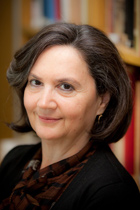
Charikleia Papageorgiadou-Banis
Charikleia Papageorgiadou, archaeologist and numismatist, is Research Director at the Institute of Historical Research (IHR), Section of Greek and Roman Antiquity (KERA) of the National Hellenic Research Foundation (NHRF) in Athens and Coordinator of the Programme “Economy and Society: The formation of the Greek world during hellenistic and roman times”.
She is approaching, through her studies, the coinage in the ancient societies as an economic phenomenon, either in the form of the numismatic circulation or, studying the evolution of the monetary economy, especially during roman times, in the Mediterranean basin and the Balkans.
In this frame she is conducting a study on the numismatic circulation in the Eastern Mediterranean from the Archaic to the Hellenistic times and she is preparing a study on Roman Republican Coin Hoards in Greece.
In addition, she studies themes from the roman numismatic iconography in order to highlight the integration and the response of the local societies to the roman policy and reality.
She has published monographs on the coinage of KEA (ΜΕΛΕΤΗΜΑΤΑ 24, 1997), on the numismatic iconography of the roman colonies in Greece (ΜΕΛΕΤΗΜΑΤΑ 39, 2004) and on the Zarifis donation in the Numismatic Museum, Athens (2006). She has also contributed in the edition of collective volumes such as the proceedings of the international conference in honour of M. Oeconomides with K.A. Sheedy (Oxbow Monograph 75, 1997) and Sailing of the Aegean . Readings on the economy and trade routes with A. Giannikouri (ΜΕΛΕΤΗΜΑΤΑ 53, 2008).
Full CV:
http://www.eie.gr/nhrf/institutes/igra/cvs/cv-papageorgiadou-en.pdf
https://eie.academia.edu/ΧαρίκλειαΠαπαγεωργιάδου
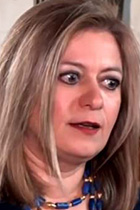
Selene Psoma
Selene E. Psoma studied History and Archaeology at the University of Athens/ Greece, Ancient Greek History, Numismatics and Epigraphy at the EPHE and the Sorbonne/ France, and also attended courses (Oberseminar) of Ancient Greek History at the University of Cologne/ Germany.
She received her PHD from Paris IV – La Sorbonne in 1996 and her Habilitation from the same university in 2006. She published a monograph about the history and coinage of the Chalcidic League (Stuttgart 2001: Franz Steiner Verlag), a volume of Sylloge Nummorum Graecorum (with I. P. Touratsoglou, Athens 2005: Academy of Athens), the Epigraphic Corpus of the Inscriptions of Aegean Thrace (with L. D. Loukopoulou et al., Athens 2005: The National Hellenic Research Foundation), the excavation coins of the two sites of Maroneia (with contributions of the excavators about the archaeological background, Athens 2008: MΕΛΕΤΗΜΑΤΑ 62, The National Hellenic Research Foundation), a collective volume of essays on the topics of History and Historical topography of Aegean Thrace (with with L. D. Loukopoulou, Athens 2008: MΕΛΕΤΗΜΑΤΑ 58, The National Hellenic Research Foundation) and over more than seventy (70) articles focused on numismatics, epigraphy, onomastics, law, history and historical topography.
She is now finishing a monograph on the history, onomastics and prosopography of Ancient Corcyra and is preparing another on the Thracian Chersonese and the so-called “coinage of the Thracian Chersonese”.
Her future project is to write a commentary of Xenophon’s Hellenica and [Aristotle’s] second book of Economics.
Full CV:
http://en.arch.uoa.gr/fileadmin/arch.uoa.gr/uploads/cvs/psoma_en.pdf
https://uoa.academia.edu/SelenePsoma
Media Sponsor

Venue
National Hellenic Research Foundation (N.H.R.F)
48 Vassileos Constantinou Avenue
The building has two entrances: the first is located on Vassileos Constantinou Av (N. 48) and the second on Vassileos Georgiou str.
You can get to NHRF by:
![]() Bus
Bus
203, 204 (Bus stop: Rizari)
224 (Bus stop: Evangelismos)
550 (Bus stop: Ethniko Idryma Ereynon)
622 (Bus stop: Evangelismos)
815 (Bus stop: Evangelismos)
![]() Metro
Metro
Evangelismos station (Exit to Rizari)
![]() Trolleybus
Trolleybus
from Patision Street > Trolleybus 3 (Bus stop: Evangelismos, on Vas. Sophias Ave.)
8, 13 (Bus stop: Evangelismos, on Vas. Sophias Ave.)
10 (Bus stop: Ethniko Idryma Ereynon)
See also :
OASA- Bus routes and timetables
Media Sponsor

Accomodation
Special arrangements have been made with :
Please contact us at [email protected] for the rates.
We wish also to inform you that you may contact the following Foreign Archaeological Institutes in Athens in order to check for availability to stay in their guest apartments:
Media Sponsor

Fees
The Summer School will charge participant fees of 400 Euros. Fees include tuition for the Summer School, course material, access to the Library of NHRF and to the Libraries of the Institute of Historical Studies, visit to Lavrion mint, entrance to the museums, coffee breaks, daily light lunch and a welcome dinner on Sunday 2 July.
Students are individually responsible for their transportation, accommodation and living expenses.
The fee is to be paid after the confirmation of acceptance has been received and the latest by 24 April 2017.
Cancellation/fee policy
Media Sponsor

Contact
For further information, please contact us by email at [email protected], or by phone (Mrs V.Kollia, +30 210 7273767)
Media Sponsor
